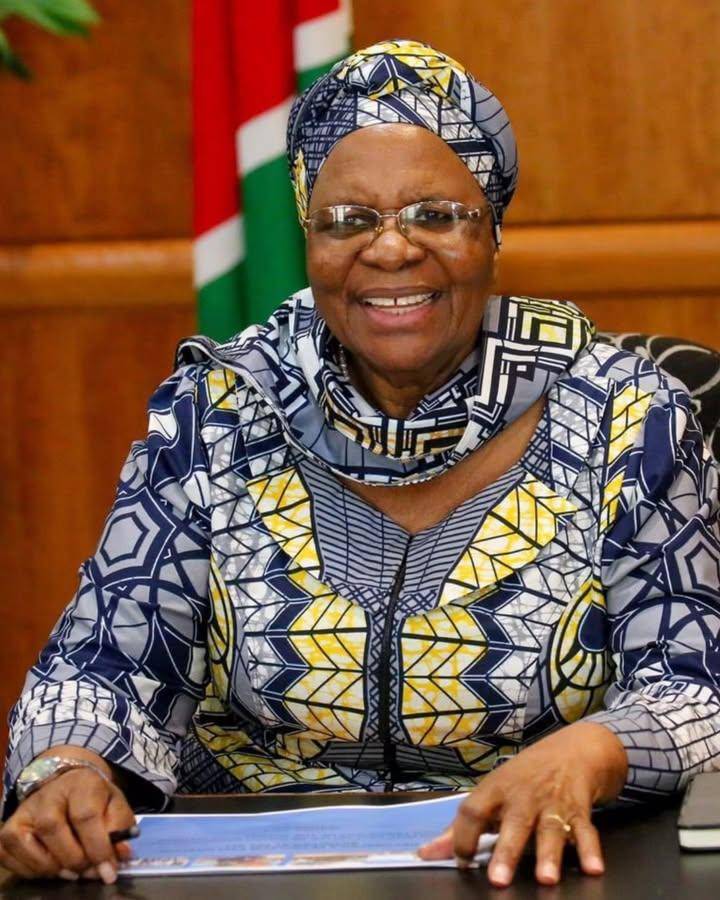Namibia Makes History: Netumbo Nandi-Ndaitwah Elected as First Female President.
Namibia has made history with the election of Netumbo Nandi-Ndaitwah as the country’s first female president. The 72-year-old politician secured 57 percent of the vote, defying early predictions that suggested a potential run-off would be needed. Her victory, officially announced on December 3, 2024, marks a milestone in Namibia's political landscape and symbolizes a significant step toward gender equality in leadership across Africa.
A Clear Victory Amidst Controversy
Nandi-Ndaitwah, who served as Namibia’s Vice President under the ruling SWAPO party, achieved a decisive win despite technical challenges during the election. Issues such as ballot paper shortages, long queues at polling stations, and delays in the voting process forced election officials to extend voting into a second day. Some voters waited up to 12 hours to cast their ballots, leading to frustrations and claims of irregularities from opposition groups.
Despite these challenges, Nandi-Ndaitwah’s victory was clear, with her securing more than the required majority of votes. However, opposition parties have raised concerns about the fairness of the election process, accusing the electoral authorities of mishandling the situation. They have vowed to challenge the election results in court, arguing that the voting extension was illegal.
Netumbo Nandi-Ndaitwah: A Career of Service and Leadership
Nandi-Ndaitwah's rise to the presidency has been decades in the making. As a prominent figure in Namibia's liberation struggle and a long-time member of the SWAPO party, her leadership credentials are solid. She has held various important positions within government, including the Ministry of Foreign Affairs, where she worked on strengthening Namibia's diplomatic relations globally. Her focus on social issues, including women’s rights and poverty alleviation, has earned her widespread respect both within Namibia and internationally.
Her election is particularly significant for women’s representation in African politics, where female leaders are still a rarity. Nandi-Ndaitwah's victory not only breaks a glass ceiling in Namibia but also inspires a broader movement towards more inclusive political systems across the continent.
Opposition's Reaction and Legal Challenges.
While Nandi-Ndaitwah’s win was celebrated by many, it was not without controversy. Opposition parties have expressed strong dissatisfaction with the way the election was handled. They claim the process was marred by errors and irregularities, particularly with the extension of voting hours. As a result, legal challenges are expected, and the political landscape in Namibia could see continued tensions in the coming weeks.
Looking Forward: A New Chapter for Namibia.
Despite the opposition’s objections, Nandi-Ndaitwah’s election represents a new chapter for Namibia, particularly in terms of gender representation in the highest office. Her leadership will be closely watched, both domestically and internationally, as Namibia navigates issues like economic development, social inequality, and regional stability. With her wealth of experience and commitment to progressive policies, Nandi-Ndaitwah’s presidency has the potential to shape Namibia’s future in transformative ways.
Namibia's first female president stands at the threshold of history, and her leadership may serve as a beacon for other nations striving for gender equality and inclusive governance. As the country moves forward under her stewardship, the global community will be watching closely to see how she tackles the challenges ahead and whether her presidency marks the beginning of a new era for African women in politics.
Conclusion: A Momentous Occasion for Namibia and Africa.
The election of Netumbo Nandi-Ndaitwah is not just a personal triumph but a victory for the principles of democracy, equality, and progress. As Namibia embarks on this historic journey with its first female president, the ripple effect across Africa could be significant, offering hope and inspiration to women leaders and political activists across the continent.



No comments yet
Be the first to share your thoughts!